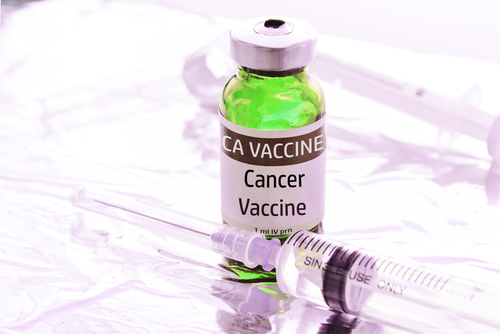Researchers in Australia are testing for a first time the safety and efficacy of a DNA-based vaccine to treat advanced colorectal cancer in people with this disease, after promising results in preclinical work in mice.
Findings from the animal study, “Cancer vaccine targeting MYB in colorectal cancer: From pre-clinical model to clinical trial,” were presented at the Digestive Disease Week 2018 (DDW) conference that took place in Washington, D.C.
Most patients — more than 80 percent — with advanced colorectal cancer have high levels of MYB, a transcription factor that controls the body’s immune response. Such elevated MYB levels are linked to aggressive disease and a poor prognosis.
In particular, high levels of MYB have a negative impact on the amount of lymphocytes recruited to cancer tissues, called tumor infiltrating lymphocytes. In effect, excessive MYB dampens the body’s natural defense against the tumor.
These patients are the ideal candidates to test a DNA vaccine targeting MYB, called TetMYB, that works by increasing the number of tumor-infiltrating lymphocytes and boosting the body’s natural immune response against cancer.
This is a key goal of newly opening Phase 1/2 clinical trial (NCT03287427), called MYPHISMO, that will enroll a total of 32 patients with advanced or metastatic solid cancers, including colorectal or adenoid cystic cancer. The study is expected to be multi-site; contact information is available here.
“We are on the cusp of testing something that could be transformative for cancer treatment,” Robert Ramsay, group leader of the Gastrointestinal Cancer Center at the Peter MacCallum Cancer Center at the University of Melbourne, and lead study researcher, said in a press release. “Cancer vaccines are getting closer to the clinic every day and are likely to provide a safer and more effective pillar of treatment for patients.
“Right now, the pillars of treatment include surgery, chemotherapy and radiotherapy, and vaccines would bring immunotherapy to the mix.”
Because a cancer vaccine used alone will likely fail — the body tends to block immune responses stimulated by the vaccine as a protective measure — patients in the trial will mostly be given the TetMYB vaccine in combination with BGB-A317, an experimental anti-PD1 checkpoint blockade antibody aiming to prevent the body from defending itself against the action of the vaccine.
An initial safety and dose “finding” stage will use the vaccine alone as well as in combination; patients will later move to combination therapy and full treatment once safety is established. Investigators estimate MYPHISMO will last three years, with 18 months of follow-up.
In preclinical studies leading up to the MYPHISMO trial, Ramsay’s group saw that when mice with colorectal cancer (MC38 model) cured by the TetMYB vaccine were then re-challenged with the same type of tumor, their body reacted immediately to destroy the tumor. This response indicates the vaccine may work to create a long-term “immune memory” that protects against cancer relapse.
Another mouse model study found that TetMYB together with anti-PD1 cured about half of the mice induced to develop colonic adenoma. The treatment also prolonged their overall survival, with mice given TetMYB living up to 356 days, compared to those in the control group reaching only 183 days.
Researchers hope these animal results will be reproducible in advanced cancer patients in the MYPHISMO trial, enabling them to conduct larger and more pivotal studies.
The TetMYB vaccine was developed and manufactured at the MacCallum Cancer Centre; BGB-A317 is being developed by BeiGene.


